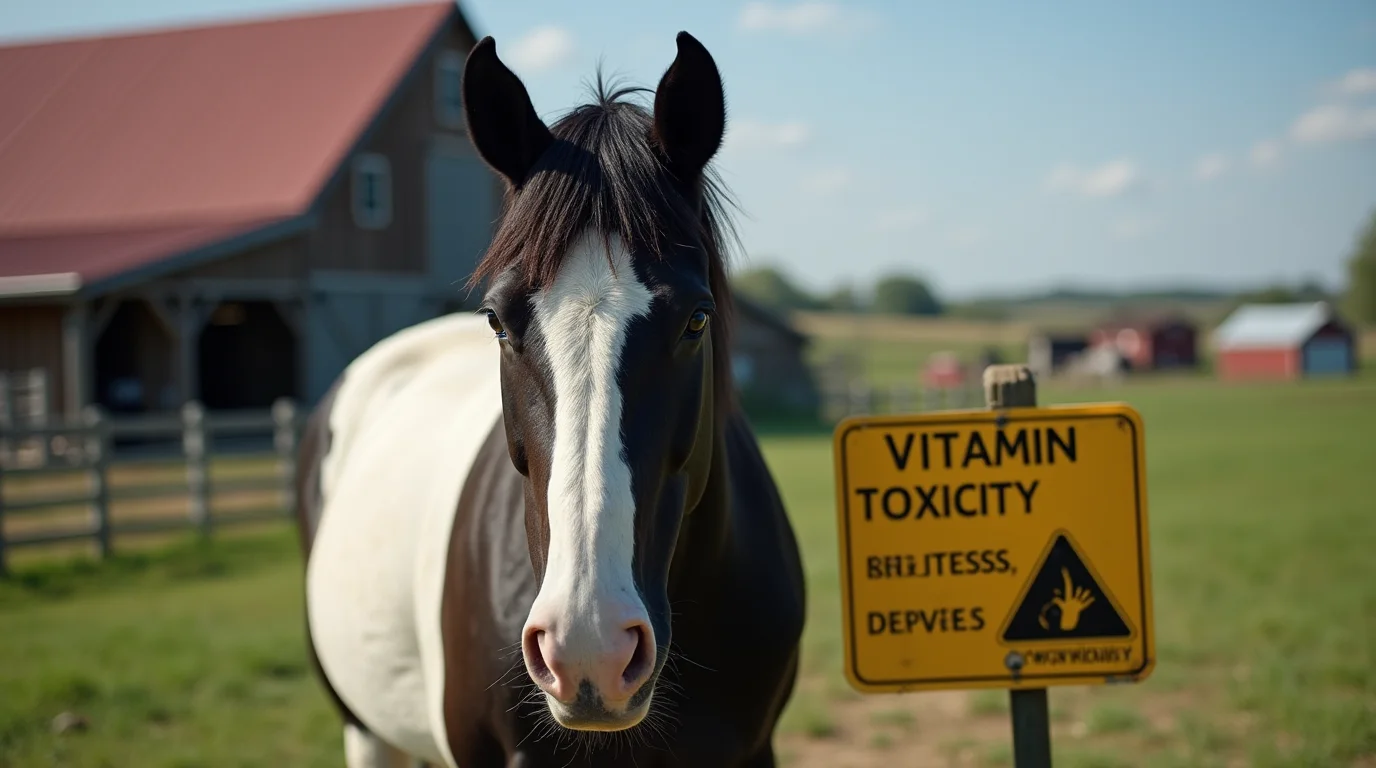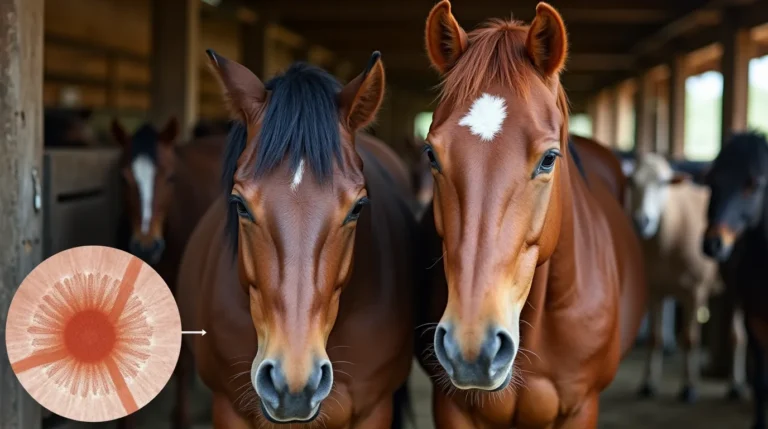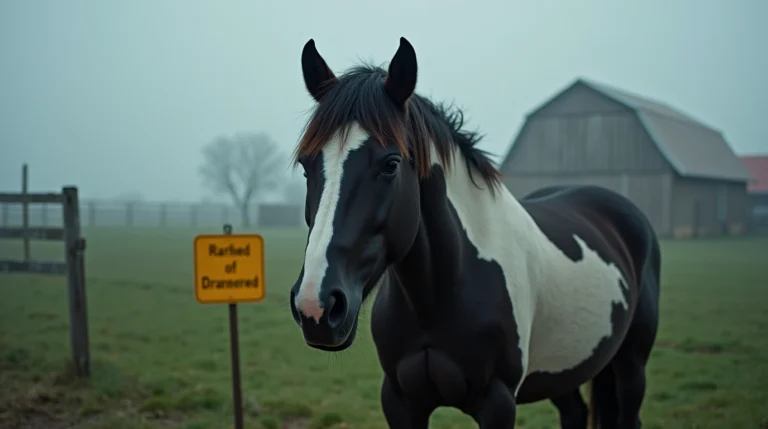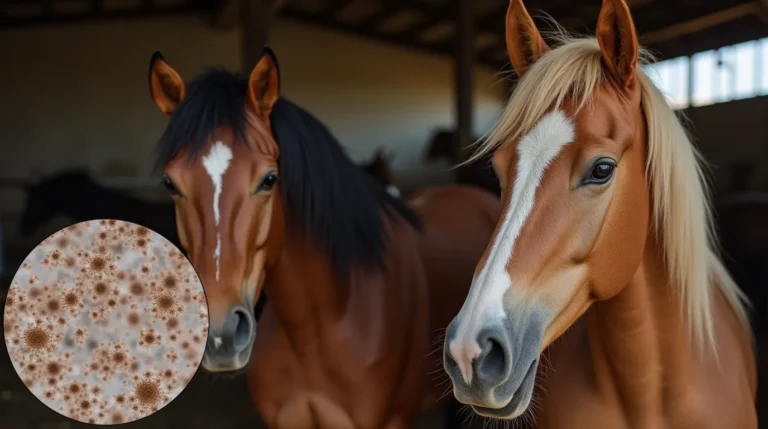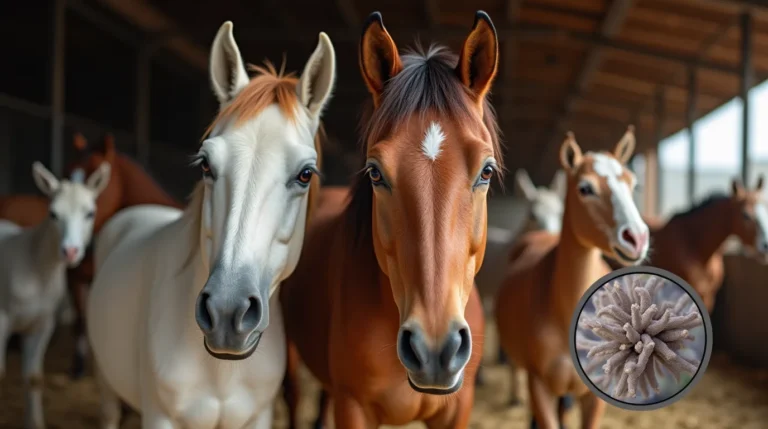Protect your horse’s health: Learn the critical signs of vitamin toxicity in Horses , potential risks, and prevention strategies for responsible equine nutrition management.
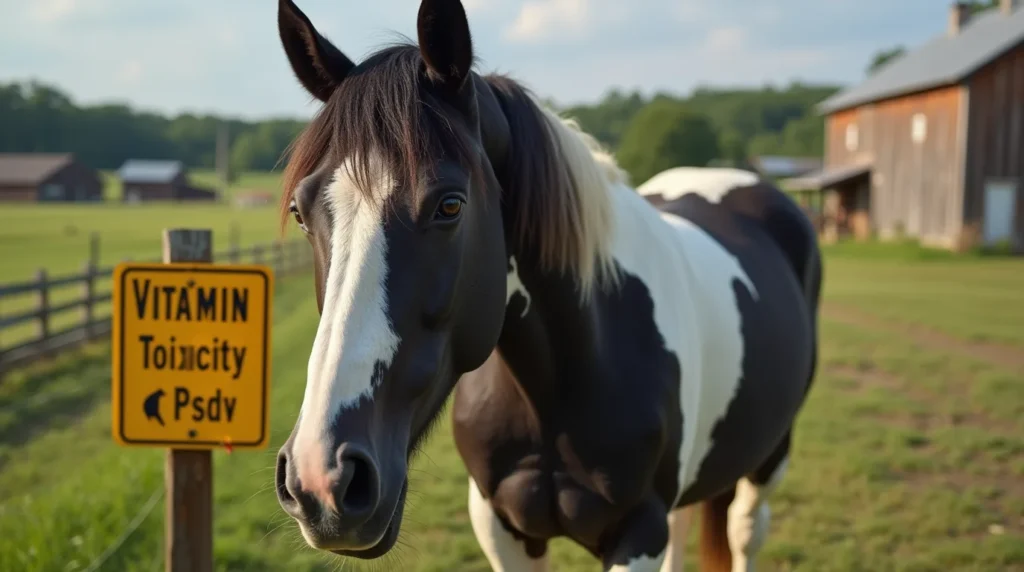
Table of Contents
Horses are magnificent creatures that require precise nutritional care. While vitamins are essential for their health, an often-overlooked danger lurks in over-supplementation: vitamin toxicity. This comprehensive guide will walk you through the critical signs of vitamin overdose, helping horse owners and caretakers recognize and prevent potential health risks.
Vitamin toxicity in horses is a serious condition that can emerge from well-intentioned but misguided nutritional supplementation. Understanding the delicate balance of equine nutrition is crucial for maintaining your horse’s optimal health and preventing potentially life-threatening complications.
Understanding Vitamin Toxicity in Horses
What is Vitamin Toxicity?
Vitamin toxicity occurs when horses receive excessive amounts of fat-soluble vitamins (A, D, E, and K) that accumulate in the body, leading to potential health complications. Unlike water-soluble vitamins that can be easily excreted, fat-soluble vitamins are stored in the liver and fatty tissues, making overdose a significant concern.
7 Critical Signs of Vitamin Overdose in Horses
1. Coat and Skin Abnormalities
- Unexplained hair loss
- Dry, brittle coat texture
- Skin irritation and unusual pigmentation changes
Excessive vitamin A can particularly impact skin health, causing:
- Rough, dry skin
- Increased photosensitivity
- Potential dermatological complications
2. Digestive System Disruptions
Vitamin toxicity can severely impact a horse’s digestive system, manifesting as:
- Persistent diarrhea
- Significant weight loss
- Reduced appetite
- Potential ulceration of the gastrointestinal tract
Vitamin A Toxicity Impact
| Vitamin Level | Potential Digestive Consequences |
| Mild Excess | Intermittent digestive upsetSevere Excess |
| Severe Excess | Chronic digestive inflammation |
3. Musculoskeletal Issues
Excessive vitamin D can cause:
- Abnormal bone calcification
- Joint stiffness
- Reduced mobility
- Potential development of bone spurs
4. Neurological Symptoms
Advanced vitamin toxicity can lead to neurological complications:
- Muscle tremors
- Coordination difficulties
- Potential seizure-like episodes
- Unexplained behavioral changes
5. Reproductive Health Complications
Vitamin overdose can significantly impact breeding horses:
- Reduced fertility
- Increased risk of miscarriage
- Potential developmental issues in foals
- Hormonal imbalances
6. Metabolic Disruptions
Excessive vitamins can create metabolic challenges:
- Insulin resistance
- Thyroid function impairment
- Potential endocrine system disruptions
- Altered metabolic rate
7. Compromised Immune Function
Paradoxically, vitamin toxicity can:
- Suppress immune system responses
- Increase susceptibility to infections
- Reduce overall disease resistance
- Impair natural healing processes
Prevention Strategies
Balanced Nutrition Approach
- Consult veterinary nutritionists
- Conduct regular blood panel tests
- Use high-quality, standardized supplements
- Understand individual horse’s nutritional needs
Supplementation Guidelines
- Never exceed recommended dosages
- Consider individual horse’s age, weight, and health status
- Regularly monitor vitamin levels
- Use blood tests to validate supplementation needs
Recommended Pet Products on Amazon
- Farnam Weight Builder Horse Supplement
- Manna Pro Opti-Zn Horse Supplement
- Majesty’s Flex Performance Horse Supplement
- Select The Best Total Equine Supplement
Vitamin Toxicity in Horses (FAQs)
Q1: How often should I test my horse’s vitamin levels?
Recommended frequency is annually, or more frequently for horses with specific health conditions.
Q2: Can vitamin toxicity be reversed?
Early detection is crucial. With professional veterinary intervention, many symptoms can be managed effectively.
Q3: Are commercial feeds sufficient for vitamin intake?
Commercial feeds often provide balanced nutrition, but individual horse needs vary. Consultation with a veterinarian is recommended.
Q4: Which vitamins are most likely to cause toxicity?
Fat-soluble vitamins (A, D, E, K) pose the highest risk due to their storage capabilities.
Q5: What are the first signs of potential vitamin overdose?
Watch for changes in coat quality, digestive issues, and unexplained behavioral modifications.
Conclusion
Understanding vitamin toxicity in horses requires a holistic, informed approach. By recognizing potential signs, implementing preventive strategies, and maintaining open communication with veterinary professionals, horse owners can ensure their equine companions receive optimal nutrition without risking overdose.
Call to Action: Share your experiences with equine nutrition management in the comments below, or explore more expert pet care guides at BlithePet
Disclaimer
This article provides general information and should not replace professional veterinary advice. Always consult with a qualified veterinarian for personalized nutritional guidance.

